Anthony Albanese on the frontline to fast-track defence fix
The Prime Minister declares this decade to be a defining one for the nation as he acknowledges the political challenge of balancing domestic economic pressures.
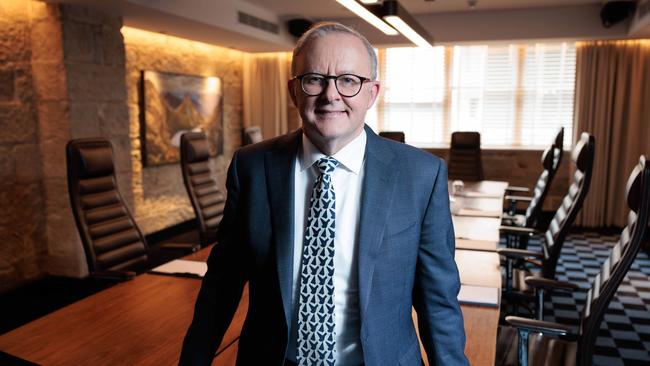
Anthony Albanese has vowed to take an active role in fast-tracking the promised upsurge to Australia’s defence assets amid serious capability concerns and a worsening strategic outlook as Jim Chalmers confirmed that defence spending would be a priority of the budget.
The Prime Minister has also revealed that he would receive Treasury advice as early as next week on bringing forward cost-of-living relief, ahead of a return to the parliamentary year and the Dunkley by-election in Victoria.
Mr Albanese told The Weekend Australian that this decade would be a defining one for the nation, both domestically and internationally, amid a deteriorating strategic environment.
It comes as China this week signalled a return to a more confrontational footing, the risk of broader regional conflict in the Middle East and Russia’s ongoing war against Ukraine.
With Australia’s naval capability and workforce levels nearing crisis level, the government has been accused of being in a state of paralysis since the release of the Defence Strategic Review last March found that the defence force structure was not fit for purpose.
Deputy Prime Minister and Defence Minister Richard Marles and Defence Industry Minister Pat Conroy have faced repeated criticism for delays in addressing key capability needs.
Mr Albanese backed his ministers and said the process would be driven by the National Security Committee of Cabinet and Cabinet.
But when asked whether he personally would be using his role as Prime Minister to take an active role in overseeing the fast-tracking of critically needed defence capability, with the surface fleet review imminent, Mr Albanese said: “Absolutely.”
“You can’t defend Australia with a press release, you need assets,” he said.
“That’s what the strategic review was about; it identified some of what we need to do.
“We are dealing with that. There were so many programs over budget and behind time.”
In his strongest comments to date on defence, Dr Chalmers also identified capability issues as a budget “priority”, citing uncertainty in the global outlook and the risk of conflict.
“When we look out to the region, we see intensifying great power competition, rising tensions, military build-up and also reduced warning time for conflict,” he told The Weekend Australian.
“The government is clear, and the Defence Strategic Review is clear, on the changes in our strategic environment.
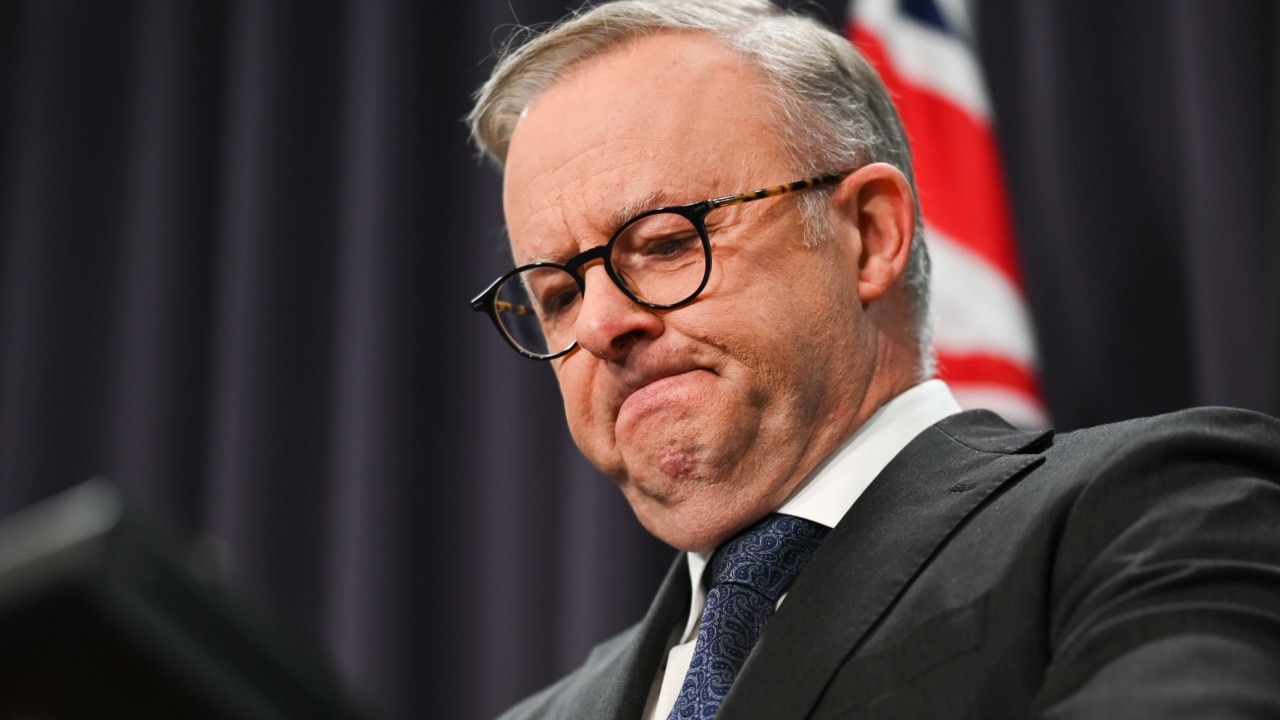
“We will make sure members of the Australian Defence Force have the capability they need to protect and defend our country, that’s a priority.
“Defence is one of the five fastest growing areas of government spending but I’m confident we can satisfy our geo-strategic objectives and our fiscal strategy at the same time.
“One of the most important reasons to get the budget in much better nick is so we can afford our priorities, build a buffer against uncertainty, and save on debt interest.”
Mr Albanese said: “This decade will shape how Australia is able to not just manage the years ahead but prosper in the years ahead.
“You have strategic competition in the region and global uncertainty that potentially flows through to the economy and that is something you just have to factor in.
“There are three areas of potential shock: one is global pandemic of which we have seen the impact of, the second is cyber security, a huge risk factor, and the third is conflict. And I would add to that climate change.
“And the impact of conflict in Ukraine continues to play out, you have the Middle East, and there is a cost to this global uncertainty.
“Part of the response is to look at defence and national security, whether it is AUKUS or cyber security.”
Strategic experts have welcomed Mr Albanese’s framing of the urgency on defence but have called on the government to match “rhetoric” with action after last year’s budget effectively cut core defence spending over the short term.
The Australian revealed this week that one Anzac class frigate had been mothballed, with two more under review to be removed from active service due to personnel shortages.
Peter Dutton, a former defence minister in the Morrison government, accused the government of allowing defence to deteriorate to a critical level.
“How can the Prime Minister say this is the most precarious period for Australia since the Second World War and then do nothing about it?” the Opposition Leader said.
“The Prime Minister was obsessed with the voice; and for the past 18 months he hasn’t done anything to strengthen Australia’s defences. The $450m spent on the voice should have been spent on our defences.”
Mr Albanese also acknowledged the political challenge in balancing the demands of more cost-of-living relief from households with an eye on containing inflation.
“It’s a considerable political challenge, to deal with that,” Mr Albanese said.
“I’m pretty optimistic about where Australia is positioned. Economically, we have created 700,000 new jobs while is inflation decreasing … that old trade-off that was deemed inevitable hasn’t occurred.
“We are getting wages moving, at the same time as producing the first budget surplus in 15 years.
“At the same time, the impact of economic change has been variable … there are some people doing it very tough under cost-of-living pressures … so we need to make sure we target relief to those people, at the same time as not putting pressure on inflation.
“I’ll receive next week further advice from Treasury and Finance about ways we can take pressure off Australians, what measures can be taken.”
Economist Chris Richardson said Mr Albanese was right to be concerned about the global situation, but he also cautioned that Labor was about to take a big gamble on early cost-of-living relief, with so many unknowns still ahead.
“There is a reasonable chance the Albanese game plan of fulfilling stage 3 – methodically ticking off a range of election promises – doesn’t cause inflationary danger,” he said of proposed tax cuts.
“The major risk of course, is Albo himself. You see that in the acceleration of the timeline in the cost-of-living relief.
“They are clearly willing to run a bit of a risk, inflation news is good enough and the polling is bad enough that they are willing to move the chess pieces.
“The point is that there are risks … and they are making it harder by what they might do on cost of living.”
Dr Chalmers maintained that the primary focus, despite the recent fall in the headline number, was inflation.
“The tick up we’ve seen in recent data in the US and parts of Europe cautions us against complacency because it’s a reminder of the ongoing impact of global economic uncertainty,” he said.
“We are making welcome and encouraging progress in this inflation challenge and the government’s policies are helping, but the fight is far from over. It’s not yet mission accomplished on inflation.”


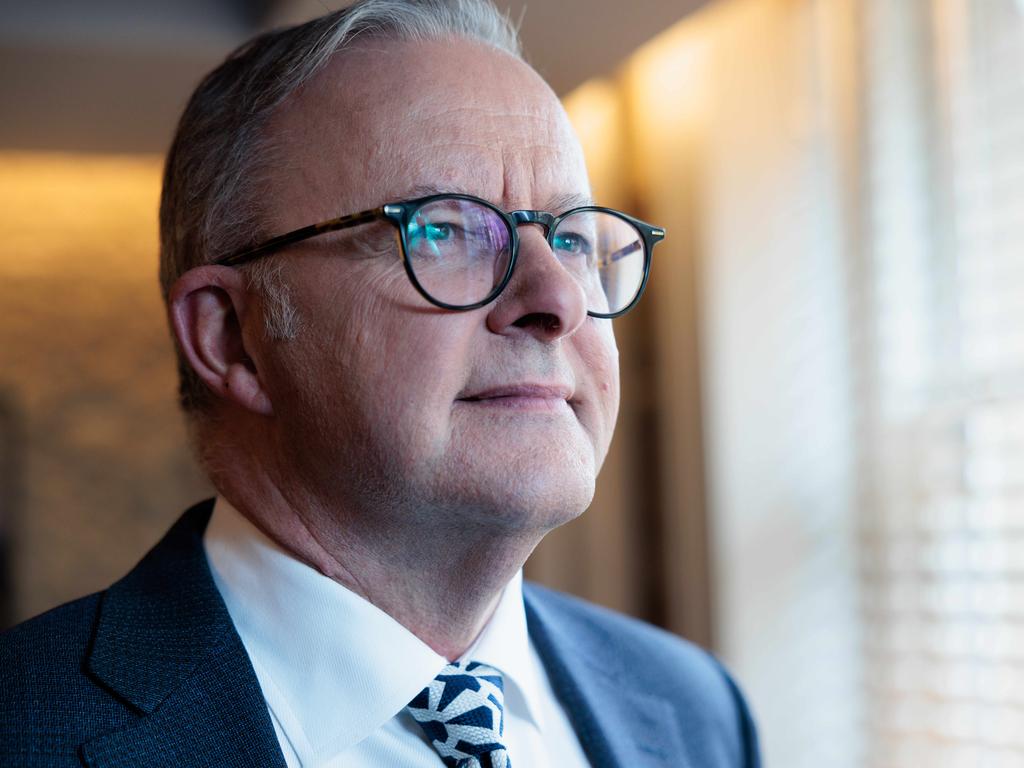
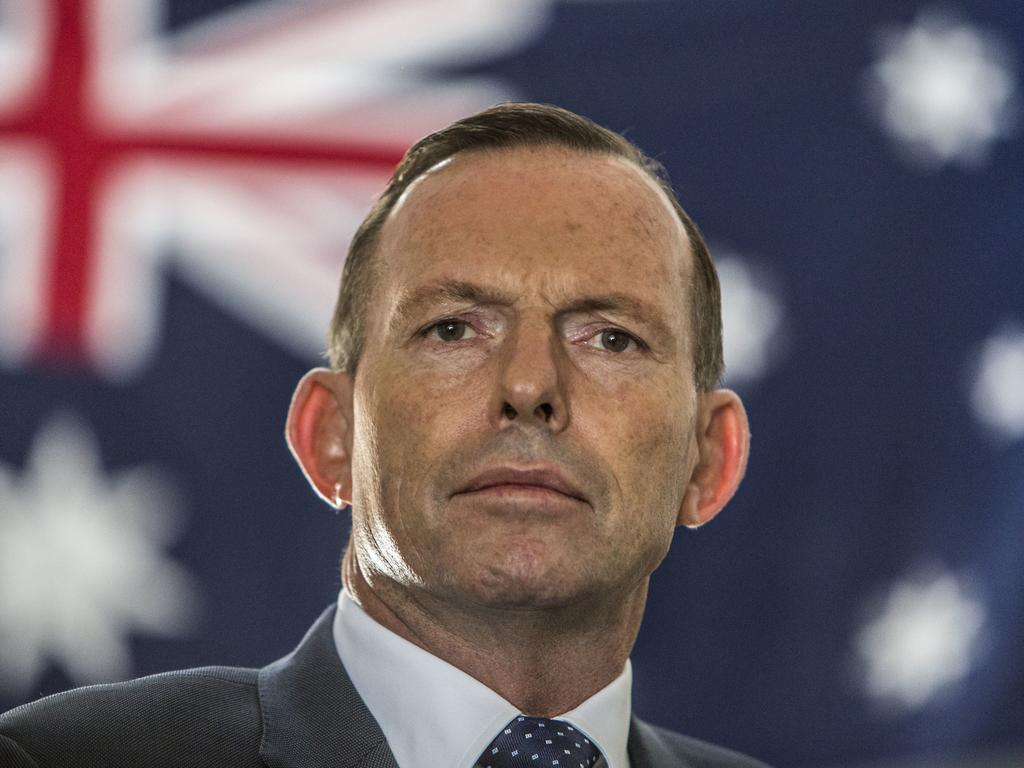
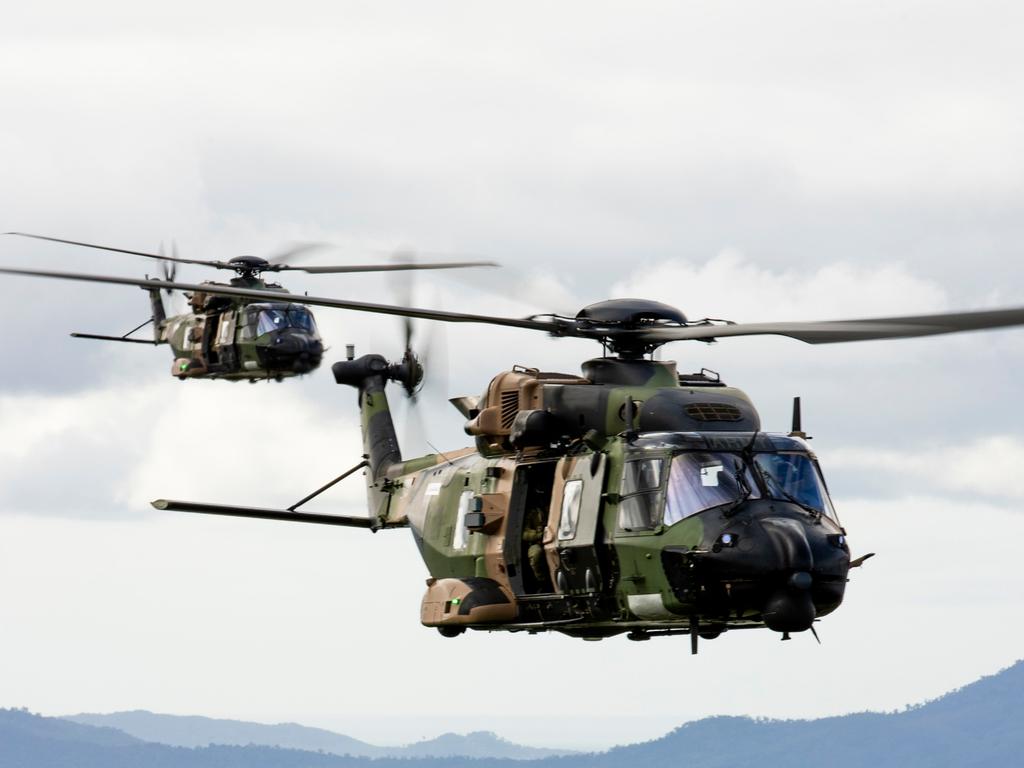
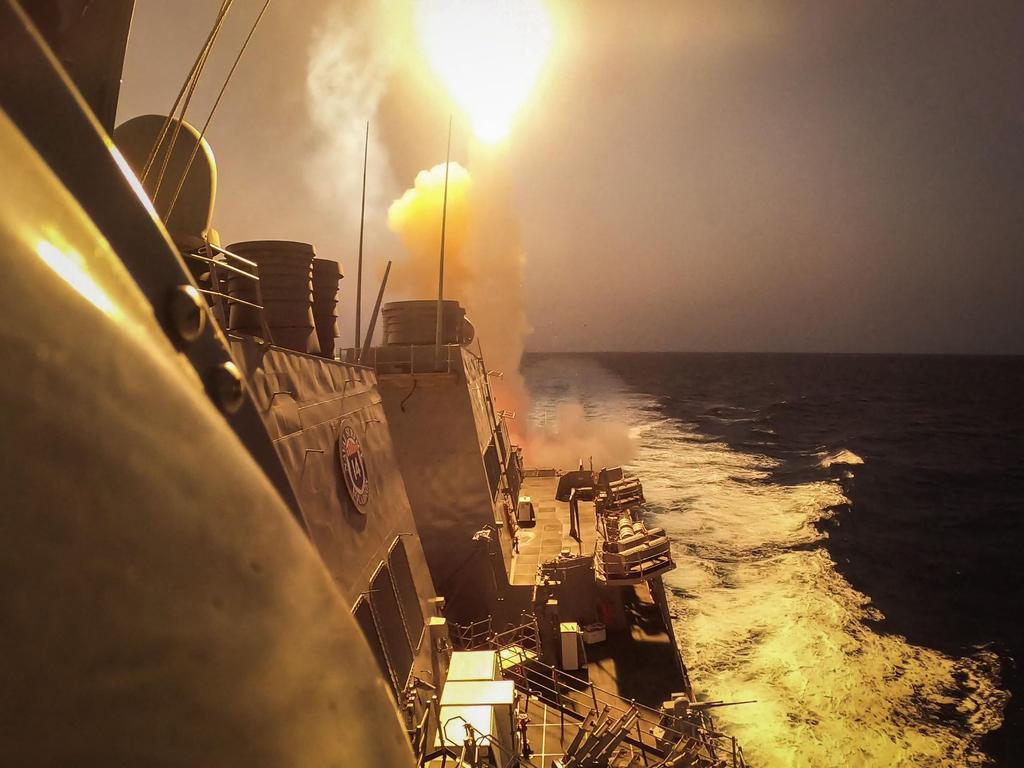
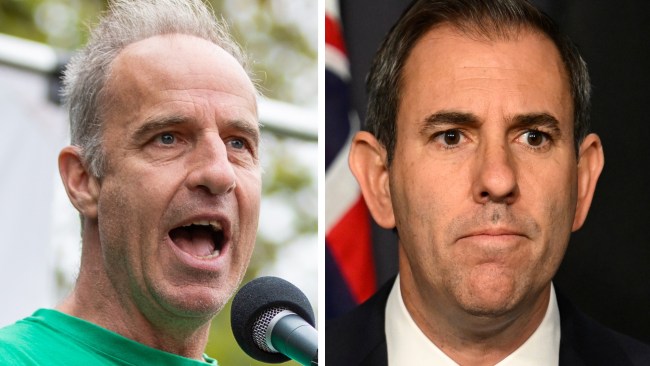

To join the conversation, please log in. Don't have an account? Register
Join the conversation, you are commenting as Logout